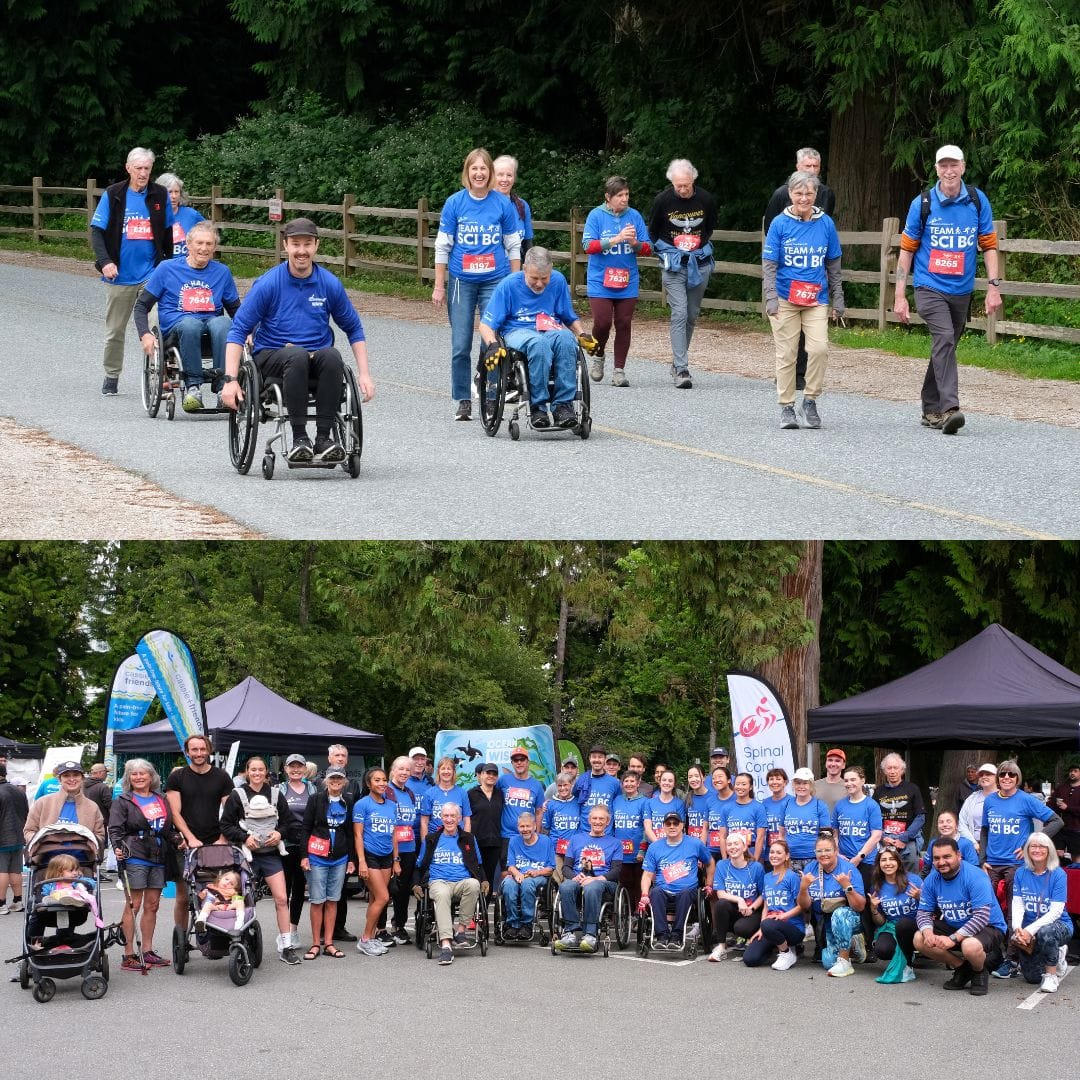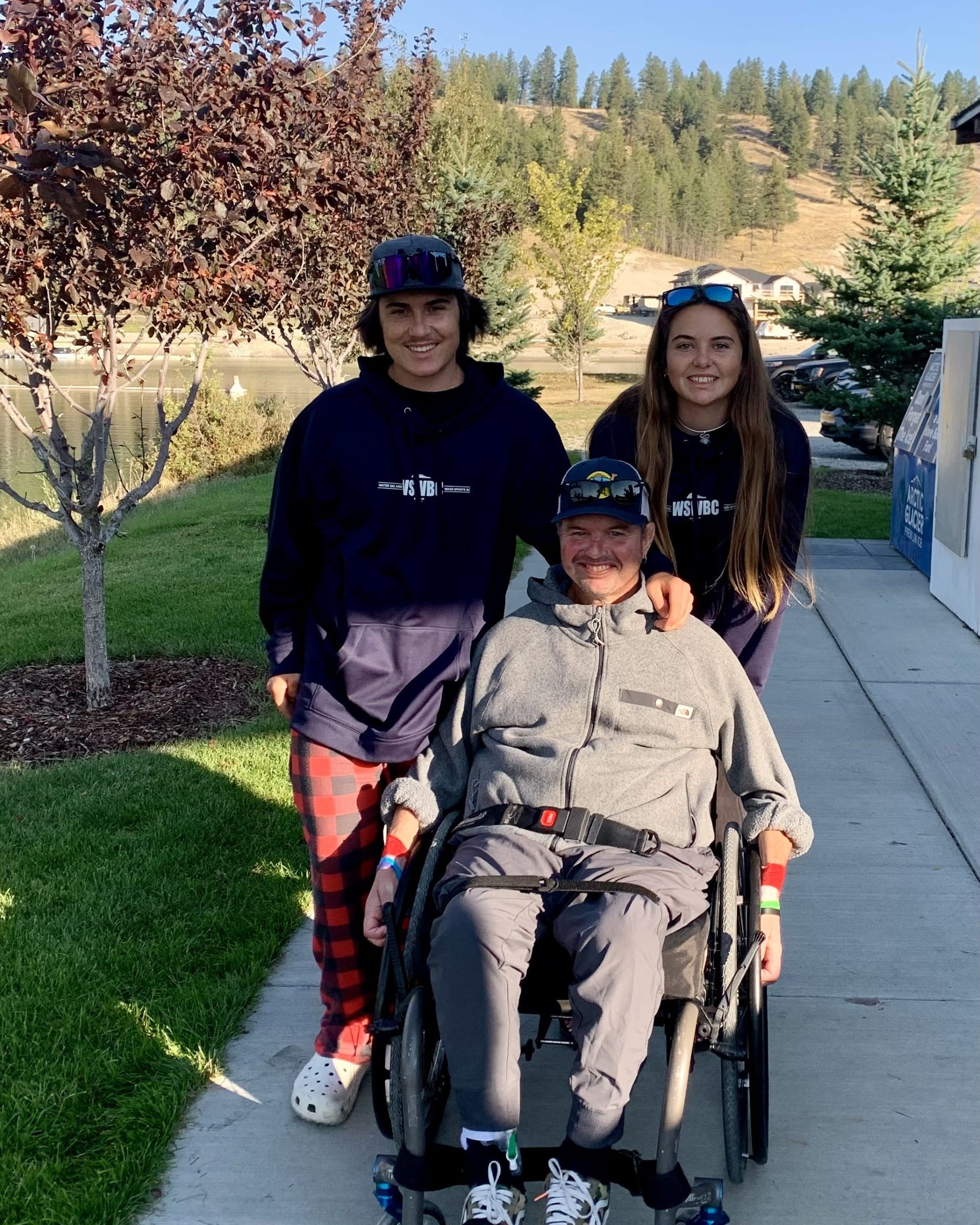With the roll-out of the COVID-19 vaccination program underway in BC, and around the world, we have received a number of questions from our community on the safety and efficacy of vaccines for people with spinal cord injury. Below is a summary of what we know.

Surprised at the rapid pace of COVID-19 vaccine development? For many reasons, 2020’s efforts didn’t face the usual lengthy vaccine development pathway. Large amounts of funding were available, and close cooperation by governments, research institutions and vaccine developers accelerated the process. While some regulatory review timelines were moved up as COVID-19 became a top priority, the vaccines were subject to the same scrutiny and review requirements as all recent vaccines.1 Those used in Canada have already faced multiple rounds of independent review of efficacy and clinical trial data here and by other governments like the US, EU and UK.
How Does the Vaccine Work?
The first approved vaccines, by Moderna and Pfizer, use mRNA, a biological code that instructs our cells how to build the SARS-CoV-2 spike protein so our immune systems can recognize it and respond appropriately if we are ever infected. This is the first use of mRNA in approved vaccines, however, it has been extensively studied in vaccine development and used in cancer treatments for more than 30 years with no long term side effects.2 Over 70,000 people participated in the clinical trials testing the safety and effectiveness of both of these vaccines. That is a large number of people! To put it into perspective, the largest spinal cord injury clinical trials usually have less than 1,000 people and more often less than 100. The mRNA from the vaccine breaks down quickly in our body, and the proteins made from its “instructions” break down within the week.3
At the time of writing this, there are four approved vaccines in Canada:
Is there any reason people with SCI should be cautious about getting vaccinated?
Vaccines have long been recommended for people with SCI as the risks of preventable illnesses like the flu and pneumonia for people with decreased lung function far outweigh any known vaccine risk.
While no individuals with SCI were known to be part of the initial clinical trials, many have certainly received the vaccine since then. No published data indicates a specific risk for people with SCI related to any vaccines, and for many reasons, mRNA vaccines might be a bit safer. mRNA has previously been used for decades as part of cancer treatment, indicating it is safe for those with immune compromise1 and because they do not introduce any live or inactivated virus particles to the body, there isn’t even a tiny risk of contracting the virus from the vaccine.2 All vaccines teach your body’s immune system how to recognize a virus when it enters your body and how to fight it so that you do not experience the disease if you are ever exposed to it in the future. When you receive any vaccine you may have some flu-like side effects, such as tiredness, headaches, fever/chills. This is a normal sign that your body is building protection. You may also have soreness in the arm in which you received the shot.6
Monitoring the Vaccine
At the time of writing, these vaccines have been administered to more than 250 million people worldwide.4 We know that most negative effects happen within 6 weeks of receiving a vaccine, which is why vaccine manufacturers were required to provide 8 weeks of safety data when considered for use in the US, Canada and other countries.3 Canada has both passive and proactive vaccine monitoring programs ensuring that adverse reactions are reported and that clinicians review a sample of cases already vaccinated to check for signs of concern or safety issues.2, 5
When Will You Get Your Vaccine in BC?
BC’s vaccination plan has four stages. The focus of Phase 1 and Phase 2 is protecting those most vulnerable to severe illness first. This includes a number of people such as residents and staff of long-term care facilities or assisted living facilities, health care workers, remote Indigenous communities, and more. Phase 3 and 4 will focus on vaccination for the general population and runs from April to September 2021. “Vaccines will primarily be distributed in five year age increments, starting with the 79 to 75 age group.” These phases and timelines may change based on vaccine availability.
Learn more about BC’s vaccination plan by visiting the Government of British Columbia’s website.
Certain populations with higher risks are now being invited to arrange their COVID-19 vaccine booster. Check out this province of BC website for information on your eligibility and how to get your booster shot: https://www2.gov.bc.ca/gov/content/covid-19/vaccine/booster
Vaccine Passports
In BC, many locations and services require proof of vaccination. Make sure you have your BC COVID-19 Vaccine Passport here: https://www2.gov.bc.ca/gov/content/covid-19/vaccine/proof
And your Federal COVID-19 Vaccine Passport for travel: https://www2.gov.bc.ca/gov/content/covid-19/travel/current#get
Ministry of Health statement on applying for medical exemptions to the vaccine card: https://disabilityalliancebc.org/moh-statement-on-applying-for-medical-exemption-to-bc-vaccine-card/
Have you had a COVID-19 vaccine? Tell us about it?
If you’ve received your COVID-19 vaccine and would like to share your experience with us please reach out to Jocelyn at jmaffin@sci-bc.ca. By sharing your experience you can help others feel informed and confident about getting vaccinated!
About the Authors
This article was written by our SCI Resource Centre Manager, Jocelyn Maffin.
With contributions by Dr. Kim Anderson-Erisman. Dr. Erisman is Director of the Northeast Ohio Regional SCI Model System, a professor at Case Western Reserve University, current President of the North American Spinal Cord Injury Consortium (NASCIC), and lives with SCI.
References
- Letter from CFFM Physicians regarding COVID-19 Vaccines. January 15, 2021. Centre for Family Medicine Family Health Team, Ontario. https://family-medicine.ca/images/CFFM-COVID19-vaccine-letter-2021.pdf
- ImmunizeBC.ca FAQ. https://immunizebc.ca/covid-19-vaccine-frequently-asked-questions
- Children’s Hospital of Philadelphia. https://www.chop.edu/centers-programs/vaccine-education-center/making-vaccines/prevent-covid
- Johns Hopkins International Vaccine Tracker. https://coronavirus.jhu.edu/vaccines/international
- Vaccines and treatments for COVID-19. Health Canada. 2020 12 16 https://www.canada.ca/en/public-health/services/diseases/2019-novel-coronavirus-infection/prevention-risks/covid-19-vaccine-treatment.html
- COVID-19 Vaccines: What You Need to Know by Kim Anderson, PhD. NorSCIs Newsletter, February 2021. (Paper not yet published online)



